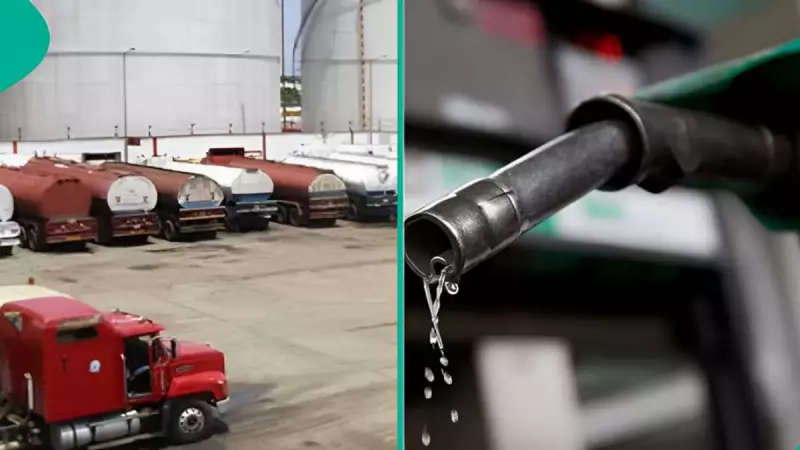
Nigerians are bracing for what could be the most severe fuel price hike in the nation's history, with industry experts warning that petrol could skyrocket to a staggering ₦1000 per litre if urgent government intervention doesn't materialize soon.
Marketers Sound Alarm Over Looming Fuel Crisis
The Depot and Petroleum Products Marketers Association of Nigeria (DAPPMAN) has issued a dire warning to President Bola Tinubu's administration, highlighting several critical factors that could push fuel prices beyond the reach of ordinary citizens. The association points to the escalating costs of crude oil in the international market and the persistent depreciation of the naira as primary drivers of this impending crisis.
Critical Factors Driving Potential Price Surge
Industry analysis reveals multiple pressure points converging to create the perfect storm for fuel prices:
- International crude oil prices continue their upward trajectory, directly impacting import costs
- Naira depreciation against major international currencies increases the financial burden of fuel imports
- High operational costs including vessel hiring, diesel expenses, and port charges
- Logistical challenges in the distribution chain adding to final consumer costs
Government Response and Import Tariff Adjustments
In what appears to be a partial response to the growing concerns, the Tinubu administration has approved a significant reduction in import tariffs for petroleum products. This move, while welcomed by industry stakeholders, may not be sufficient to prevent the anticipated price surge according to market analysts.
The Nigerian National Petroleum Company (NNPC) Limited continues to play a crucial role as the primary supplier of petroleum products, but private marketers emphasize that sustainable solutions require broader economic interventions beyond temporary tariff adjustments.
Economic Implications for Nigerian Households
Should petrol prices reach the projected ₦1000 per litre mark, the ripple effects across the Nigerian economy would be devastating. Transportation costs would inevitably spike, leading to increased prices for basic commodities and services. Small businesses, already struggling with high operational costs, would face additional pressure that could force many to scale down operations or shut down completely.
The manufacturing sector would also bear the brunt of higher energy costs, potentially leading to reduced production capacity and job losses across multiple industries.
Stakeholders Call for Comprehensive Solutions
Oil marketers are urging the federal government to implement holistic measures that address the fundamental issues plaguing the downstream petroleum sector. These include:
- Accelerating the rehabilitation of the nation's refineries to reduce dependence on imported fuel
- Implementing targeted interventions to stabilize the naira
- Creating an enabling environment for private investment in refining capacity
- Addressing security challenges affecting oil production and distribution
As the situation develops, all eyes remain on the Tinubu administration's next moves regarding what many are calling Nigeria's most pressing economic challenge.





